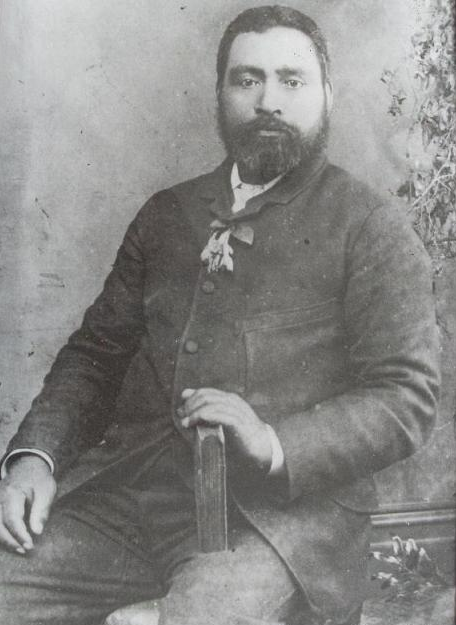|
Meri Mangakāhia
Meri Te Tai Mangakāhia (22 May 1868 – 10 October 1920) was a campaigner for women's suffrage in New Zealand, who inspired future generations of Māori women. Biography Mangakāhia was born Meri Te Tai in Lower Waihou near Panguru in the Hokianga, Hokianga valley. A member of the Te Rarawa iwi, she was of Ngāti Te Rēinga, Ngāti Manawa and Te Kai Tutae, Te Kaitutae origin, and was the daughter of Re Te Tai, an influential chief. Mangakāhia was educated at St Mary's Convent in Auckland. She was an accomplished pianist. Mangakāhia was the third wife of Hāmiora Mangakāhia, an assessor in the Native Land Court, and in June 1892 he was elected Premier of the Te Kotahitanga, Kotahitanga Parliament in Hawke's Bay Region, Hawke's Bay. The following year, she addressed the assembly (the first woman to do so), submitting a motion in favour of women being allowed to vote for, and stand as, members of the Parliament. She was asked to come to the House to speak to her motion, and in ... [...More Info...] [...Related Items...] OR: [Wikipedia] [Google] [Baidu] |
Hāmiora Mangakāhia
Hāmiora Mangakāhia (1838 – 4 June 1918) was a prominent Māori people, Māori chief and the first Premier of Te Kotahitanga, the movement for an independent Māori people, Māori parliament in New Zealand in the 1890s. Of Ngati Whanaunga descent, Mangakāhia was born in Waikaurau on the Coromandel Peninsula. In 1892 he was one of 19 chiefs elected to represent Te Tai Hauāuru in the Lower House of Te Kotahitanga at its first sitting at Waipatu Marae. As a leading organiser of the movement, he was nominated by fellow chiefs Henare Tomoana and Te Keepa Te Rangihiwinui to the position of Premier, which he held for the duration of the 1892 sitting of the parliament. Prior to his involvement in Te Kotahitanga, Mangakāhia unsuccessfully contested the Western Maori electorate in the New Zealand Parliament in the and s. In 1881, he came a distant second of four candidates, trailing Wiremu Te Wheoro by over 53% of the vote. In 1884, of eight candidates, he came seventh with 8.85 ... [...More Info...] [...Related Items...] OR: [Wikipedia] [Google] [Baidu] |
